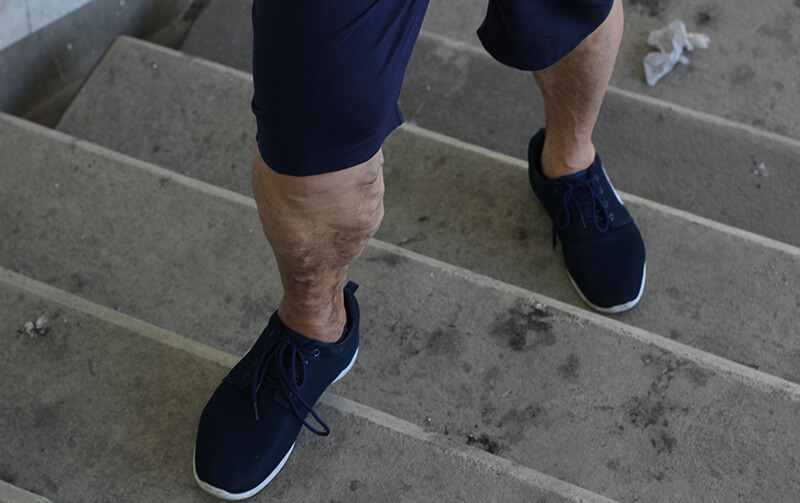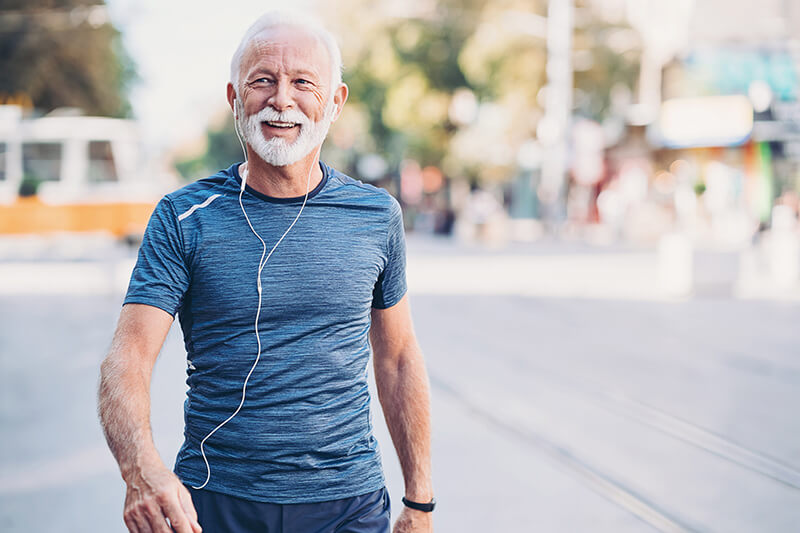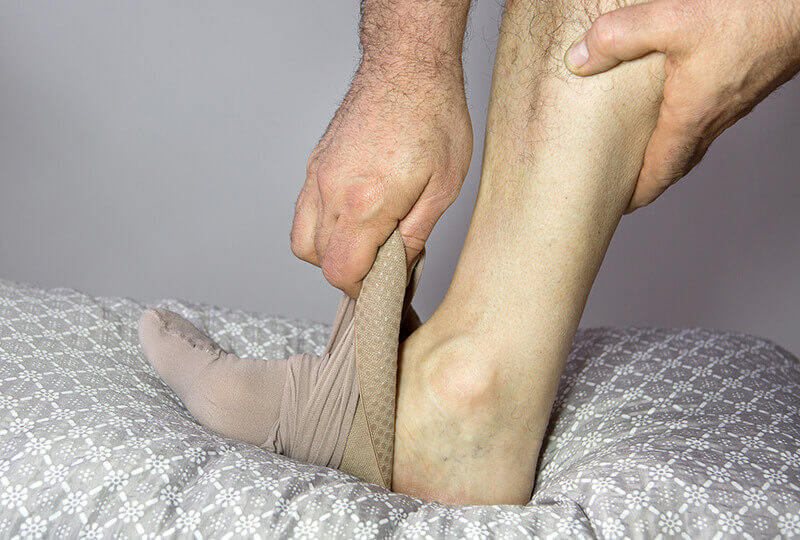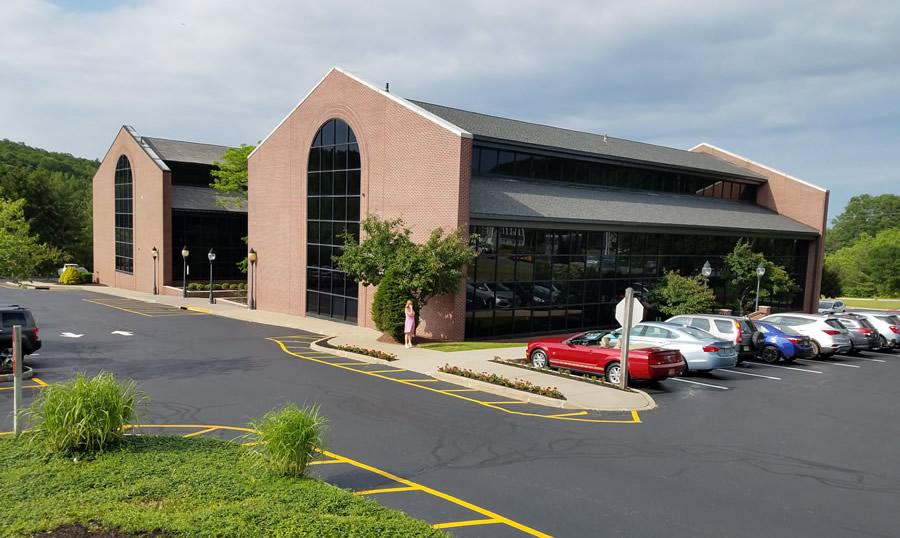
Varicose Veins in Men—What You Should Know
Don’t think that varicose veins are just a woman’s problem. They’re a guy thing too. When it comes to varicose veins in men—here’s what you should know.
Varicose veins are those unattractive, sometimes painful, bulging veins usually found on legs.
It’s true—varicose veins are often harmless. But sometimes they warn of an underlying health issue.
You’re Not Alone
According to the American Heart Association/American Stroke Association Journal (AHA/ASA) 11 million men aged 40-80 have varicose veins.
Many men go on to develop symptoms of chronic venous insufficiency, including venous ulceration.
So don’t be in denial! Sometimes it’s just plain foolish to ignore them.
Doctors Warn Against Ignoring Varicose Veins
If you’re a man, and you have varicose veins … don’t ignore them!
Dr. Stuart Miller of The New Jersey Vein and Vascular Center warns, “Most men won’t come in until there is ulceration or bleeding … or their wife makes them come in. Waiting is not the answer!”
Medical Problems Associated with Varicose Veins
Ignoring varicose veins may lead to these advanced varicose vein problems:
- Leg ulcers from varicose veins
- Spontaneous bleeding
- Disease progression
- Scarring
- Thrombosis
- Vein inflammation
Veins Have an Important Job
Veins return deoxygenated blood to the heart. An artery then takes the blood to the lungs. Once in the lungs, the blood receives new oxygen.
Problems arise when the valves in the veins weaken or fail, and veins can’t do their job. This is called venous insufficiency–a serious medical problem.
Veins can only perform properly if they’re healthy. A vein doctor should check varicose veins to make sure they are working well.
Signs and Symptoms of Varicose Veins in Men
Varicose vein symptoms include:
- Veins that are twisted or bulging
- Achy or heavy feeling in the legs
- Burning, throbbing, cramping, and swelling in the lower leg
- Increased pain after sitting or standing for long periods
- Itching near one or more veins
- Skin discoloration
Should you call a doctor if you have leg pain? Probably.
Causes of Varicose Veins in Men
The major causes of varicose veins in men include:
- Heredity
- Sitting or standing for long periods of time
- Age
- Obesity
How to Prevent Varicose Veins—Tips for Men
Now that you know the risks, it’s easy to understand why being proactive about vein care is so important.
If you know that venous insufficiency runs in your family, taking preventive steps now is even more important.
Regular exercise and a healthy diet are essential for vein health.

Exercise Prevents Varicose Veins
Genetics can be an indicator of varicose veins. And you can’t change that.
But you can take action to fight other associated causes of varicose veins, including being overweight or inactive.
Preventing varicose veins with exercise is a great start.
As men age, they produce less testosterone and HGH with each passing year. This slows the metabolism and causes weight gain.
Exercise helps ease this natural progression of weight gain in men. So, in case you needed more motivation to exercise, consider that fewer pounds mean less stress on veins and thus less tendency for vein problems.
Working out will also build healthy leg muscles. Calf muscles are especially important to vein heath because they help pump blood back to your heart more efficiently.
If you’re just starting an exercise regimen, choose an activity you might enjoy. But don’t over-do it. Walking, swimming, yoga, and other low-impact activities are all great to move your body.
High-impact sports, torn ACLs, or a popped hamstring won’t do much for leg and venous health.
Remember, sitting or standing in one position all day is your enemy. But that doesn’t mean you have to train for the Olympics.
Studies have shown that any amount of regular movement is helpful.
Anything from a brisk daily walk to just stepping away from your desk every so often is far better than nothing. Every little bit counts and will make a measurable difference.
Good Diet and Nutrition Fights Varicose Veins in Men
A healthy diet helps keep your weight down, powers your workout, and improves your mood.
Here are some great tips for top foods that improve circulation and vein health.
Beyond that, dietary recommendations specific to venous health include:
- Adding fiber to prevent absorption of unhealthy fats and cholesterol buildup
- Boosting levels of vitamin C to aid the production of collagen and elastin, infrastructural tissues that literally support veins
- Staying hydrated to help fiber flush your system and maintain electrolyte balance
- Eating more rutin, an antioxidant flavonoid found in apple peels, asparagus, green tea, figs, cranberries, and citrus zest that reduces inflammation
- Consuming less salt, thus decreasing water retention and vein pressure

Men Can Get Relief from Varicose Veins
Wearing compression socks and keeping legs elevated can help support veins and reduce pressure. And this reduced pressure can aid in the prevention of varicose veins, as does proper diet and exercise.

Sometimes varicose vein treatment is necessary to restore healthy blood flow to your legs. The presence of bulging and discolored veins or pain could mean clinical treatment is in order.
There are several safe, minimally invasive procedures that are performed in our office in less than an hour. Health insurance or Medicare covers many of these procedures.
Endovenous Laser Ablation (EVLT)
EVLT, also known as endovenous laser vein therapy, only requires local anesthesia. It is a safe, virtually painless procedure that eliminates damaged varicose veins.
Ultrasound guidance is used to insert a thin heat-producing laser fiber into the vein. The procedure results in the vein closing. Your body then reroutes blood flow to a nearby healthy vein.
This procedure relieves pain caused by the varicose vein. There is little or no scarring. There is minimal recovery time.
Varithena
Varithena is an FDA approved injectable foam therapy. This non-surgical procedure uses a sclerosing agent that causes the vein to collapse and close. Blood is displaced into a healthy vein.
ClariVein
ClariVein is a non-thermal treatment that closes a targeted vein. This easily tolerated procedure is highly effective.
Contact The New Jersey Vein and Vascular Center to arrange an appointment and discover the pain-free lifestyle, confidence, and improved appearance that comes with circulatory health.

